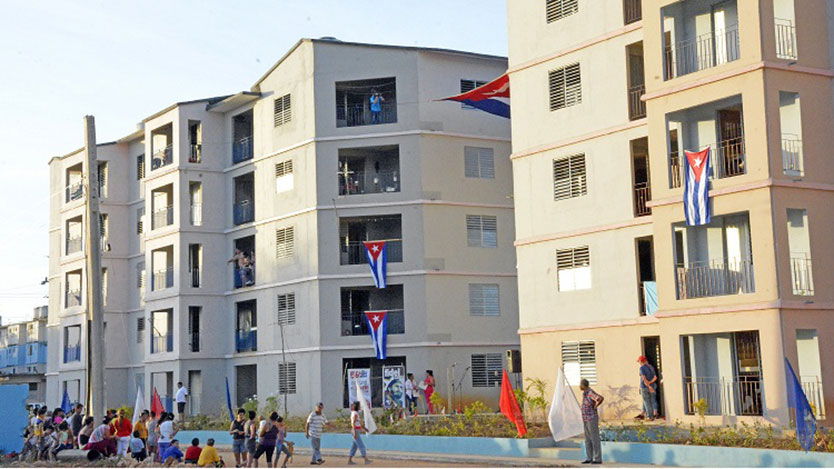
Havana, October 14 – In October 1953, in his speech, “History Will Absolve Me”, Fidel Castro outlined Cuba's social problems and shortly after, on this day in 1960, he considered the transformation project revealed at that time accomplished.
A few months after the triumph of the "Barbudos" in January 1959, and after two days of work by the Council of Ministers, the Urban Reform Law and the Law on Vacant Lots and Recreational Estates were enacted.
Their main purpose was to grant property rights of the homes to the families living in them, prohibit evictions, and guarantee decent housing for every citizen.
According to historiography, that October 14th formally realized the Moncada Program, which was contained in Fidel Castro's self-defense speech following the assaults on the Moncada and Carlos Manuel de Céspedes barracks in eastern Cuba.
Land ownership and exploitation, industrialization, unemployment, and education, health, and housing were identified as core areas of work to transform the nation's reality.
Regarding housing problems, Fidel stated in his self-defense that in Cuba there were "200,000 huts and shacks" and "400,000 families" crammed into tenements, slums, and vacant lots without basic hygienic conditions.
"Two million two hundred thousand people in our urban population pay rents that absorb between a fifth and a third of their income, and two million of our rural and suburban population lack electricity," he noted.
Specifically, the Urban Reform Law had precedents in similar legal bodies issued by the Revolutionary Government, such as the suspension of rent reductions and the creation of the National Institute for Savings and Housing.
As a result of its implementation and other adopted measures, the number of homes increased, overcrowding decreased, and the disparities in housing stock between rural areas and provincial capitals changed.
From unhealthiness and insecurity due to evictions, from the more than 700,000 houses in poor condition, progress was made to the construction of almost 8,000 homes in just two years, according to official data from 1962.
And so, the country's housing stock grew; even the way of assessing housing quality (related to the infrastructure, logistics, and environmental characteristics of its surroundings) changed, although the aspiration that gave life to the Law still has a way to go to be one hundred percent realized. (PL) (Photo: Taken from the Internet)